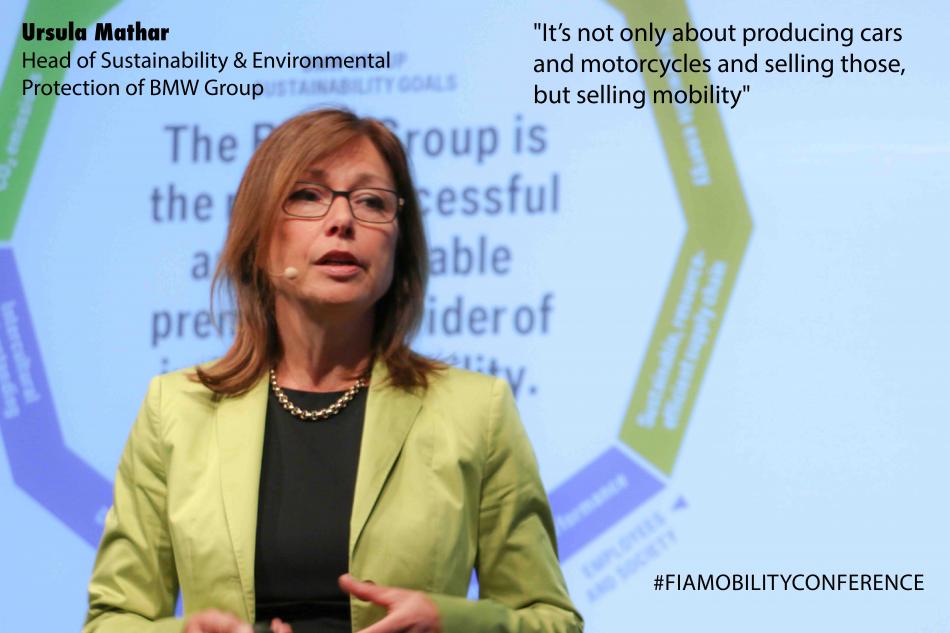Ursula Mathar: "It's all about selling mobility"

Q You’re here to talk about intelligent and sustainable mobility. What changes in the mobility landscape is BMW foreseeing and what is the company’s response?
A What changes is that it’s not only about producing cars and motorcycles and selling those, but selling mobility. We are in the area of products and services and that means that in the end we are selling mobility to the customer.
Q What shape does that take in terms of not just being a car manufacturer but with regard to the provisions of services?
A It’s about car sharing; station-free car sharing, which we have done for four years. We started in Germany, we expanded it to different European cities and a month ago we started in the US, with Seattle as the first city, and we will proceed on that because we are really profitable in Germany with car sharing. So it’s about selling mobility. We are seeing the changes in society. We see that there is a demand to be more flexible with regard to mobility, especially in urban areas.
Q That would seem antithetical to what a car manufacturer does, as you will surely build less cars to meet this demand. Where does the profit centre lie for BMW?
A It need not mean that we are selling less cars. We have access to a younger target group with car sharing, because the average age of people using car sharing is lower. But when they start a family, when they are a little bit older, they already have experience of our brands, BMW and Mini, so we have probably a better chance to get them as a customer, to buy a car. Also, if you think about cities, you will have more car-sharing. You might also have in the countryside closed user groups car sharing in a village or small city, so if we have a larger share of that then in the end our business case is positive.
Q Is there an opportunity for organisations to partner with BMW in the provision of such services?
A We partner with different companies. For car sharing in most European cities we partner with Sixt, the rental company. In Denmark, in Copenhagen, we have the public transport company Arriva as a partner and we are doing Copenhagen only with the i3 model, so we have 400 i3 cars there for car sharing. There are other options, so partnering is really part of our overall strategy. We cannot do it alone. In all cases we have to use the competencies of others, and to scale up things like car sharing we need partners.
Q Let’s talk about BMW’s broader sustainability model. One of the key phrases you use is ‘Evolution and Revolution’. What does that mean exactly?
A Evolution means that we bring efficient dynamics to our combustion-engined cars. We are making the basis of our business [combustion-engined cars] more efficient, but we are still keeping the dynamics which everybody expects from the BMW brand and its products. Revolution is with the BMW
i Series – the i3 and the i8 – the two new cars. It’s also that we are extending the i brand with additions, and also we are expanding the services we talked about – car sharing, parking, charging your electric vehicle. This is the revolution – going into new areas, selling mobility.
Q BMW has not been involved in the ‘Dieselgate’ scandal, but how do you feel the consumer trust has been affected by the issue and can that trust be recovered?
A Of course we hope it can be recovered, but it’s something the whole industry has to deal with, even if we are not really involved. But we feel it. I think in our communication we have to make it really fact-based; we have to make it credible. Our sustainability data is all checked by a public accountant. This was already the case before this issue but now it’s even more important. To show that we are doing our homework and that it’s not only nice marketing, but that sustainable mobility is at the heart of the company.

 Facebook
Facebook Twitter
Twitter






